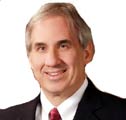
My daughter asked me my opinion on an article she read in Vanity Fair attempting to debunk the presidential record of Ronald Reagan. I happily responded.
The writer of the piece is veteran liberal commentator Michael Kinsley, who used to be a regular on William F. Buckley Jr.'s "Firing Line" and CNN's "Crossfire." It's not as though he appeared out of nowhere, studied the evidence anew and shared a novel theory. He's been dissing Reaganomics for decades along with other Democrats and liberals, whose only recourse is to distort the Gipper's phenomenal record.
Why is this even relevant, you ask? Well, according to Kinsley, "every serious G.O.P. presidential aspirant invokes the glorious era of Ronald Reagan, to which the country must return. Ignore the fact that, for the likes of Paul Ryan and Rand Paul, Reagan's actual record — from increased bureaucracy to higher deficits — should be seen as a complete failure."
Ever since Reagan's two terms in office, Democrats have been trying to recast those years of remarkable peacetime growth without inflation as a time of abject greed, when the rich got richer and the poor got poorer. But the facts have never corroborated their propaganda.
To really understand Reagan's record — and thus mainstream conservatism still today — you must remember just how bleak things were during the Carter years. At the end of Jimmy Carter's term, unemployment was 7.4 percent and galloping toward double figures; inflation was already in double digits; and interest rates were a staggering 21.5 percent. There was no end in sight.
Indeed, I remember the general malaise that gripped the nation at that time — the attitude of despair, fatalism and resignation. America's best years, according to Carter's apologists, were behind her, and it wasn't his fault that things were so abysmally bleak.
Reagan, against all naysayers, promised that the proper policies could unleash the sleeping economic giant again and that we could return to sustained, robust growth and prosperity. Once elected, despite strong opposition from Democrats in Congress, he fulfilled his promise.
Reagan inherited a steep recession but, unlike President Obama today, did not keep using it as an excuse well into his presidency. Reagan didn't need excuses, because his policies began to produce results very quickly.
Reagan had pushed for a 30 percent across-the-board cut in marginal income tax rates, but Democrats in Congress forced a reduction to 25 percent and delayed its implementation. But once the bill passed and kicked in, the results were dramatic.
Along with Reagan's policy of deregulation, his tax cuts produced an economic boom that continued for almost eight full years — from November 1982 to July 1990 — with not a scintilla of a recession.
Reagan's policies led to the largest period of economic growth to date in the history of the nation. The economy was nearly a third larger at the conclusion of the Reagan years than at the beginning, and real median family income grew by $4,000, as opposed to almost no growth during the Ford-Carter years.
Like President John F. Kennedy, Reagan demonstrated that reducing marginal income tax rates could increase revenues. Revenues almost doubled during the Reagan years, and even after adjusting for inflation, they increased by some 28 percent. Reaganomics also shattered the long-established economic textbook axiom that there is a trade-off between unemployment and inflation. Despite nearly 20 million new jobs, there was barely any upward pressure on prices.
Though Democrats preached that under Reagan, the rich got richer and the poor got poorer, in fact the plight of all income groups improved. Not only that but upward mobility, which received its last rites under Carter, made a dramatic comeback, as a Treasury Department study revealed that 86 percent of the people in the lowest 20 percent of income in 1979 graduated into higher categories during the '80s. More people in every income group moved up than down except — ironically — the top 1 percent of earners.
Moreover, the real Reagan record puts the lie to the liberal manta that the rich didn't pay their "fair share." In the first place, average effective income tax rates were cut more for lower-income groups than for higher-income groups. In 1991, after the Reagan cuts had been in place for almost a decade, the top 1 percent of income earners paid 25 percent of income taxes; the top 5 percent paid 43 percent; and the bottom half paid only 5 percent. How is that for fairness?
Unfortunately, Reagan didn't achieve the spending reductions he'd envisioned, though some misinformation exists here, too. Military spending constituted much of the increase — by design and by necessity after Carter's gutting of our vital defenses. But the rate of domestic spending grew more slowly under Reagan than under his immediate predecessors and would have been reduced far more but for recalcitrant big-spending Democratic congressmen.
The military spending, coupled with Reagan's coherent peace-through-strength foreign policy, yielded immeasurable dividends, as the Soviet Union soon disintegrated. And no, my revisionist liberal friends, this was not because of a willing, enlightened Mikhail Gorbachev.
President Reagan is still the model for conservative presidential aspirants — and for very good reasons that will not be erased, no matter how earnestly liberals try.
Comment by clicking here.
David Limbaugh is a columnist, author and attorney practicing in Cape Girardeau, Mo.



 Contact The Editor
Contact The Editor
 Articles By This Author
Articles By This Author